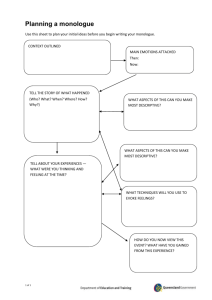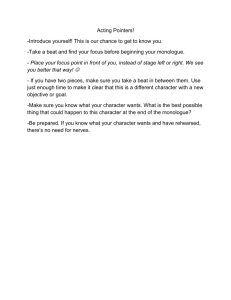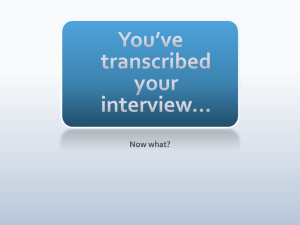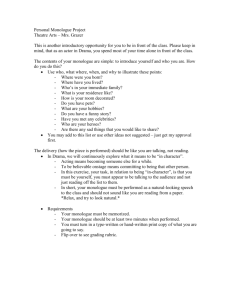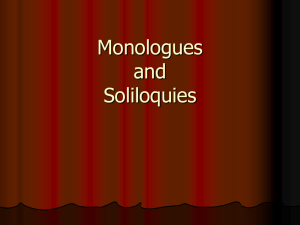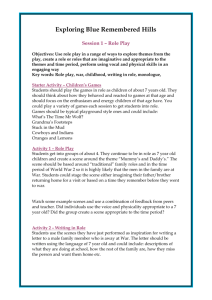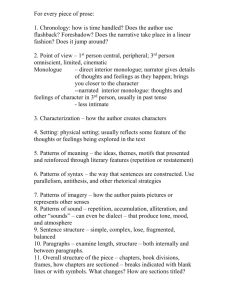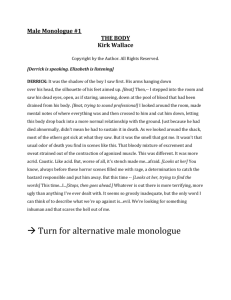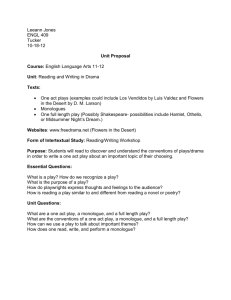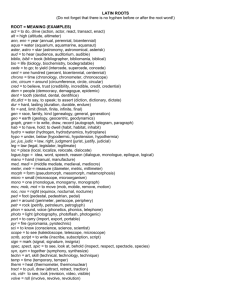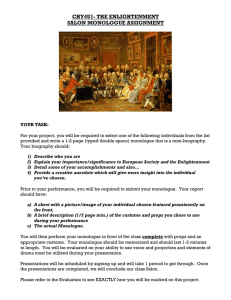Writing-Guidelines2 - University of Texas at El Paso
advertisement
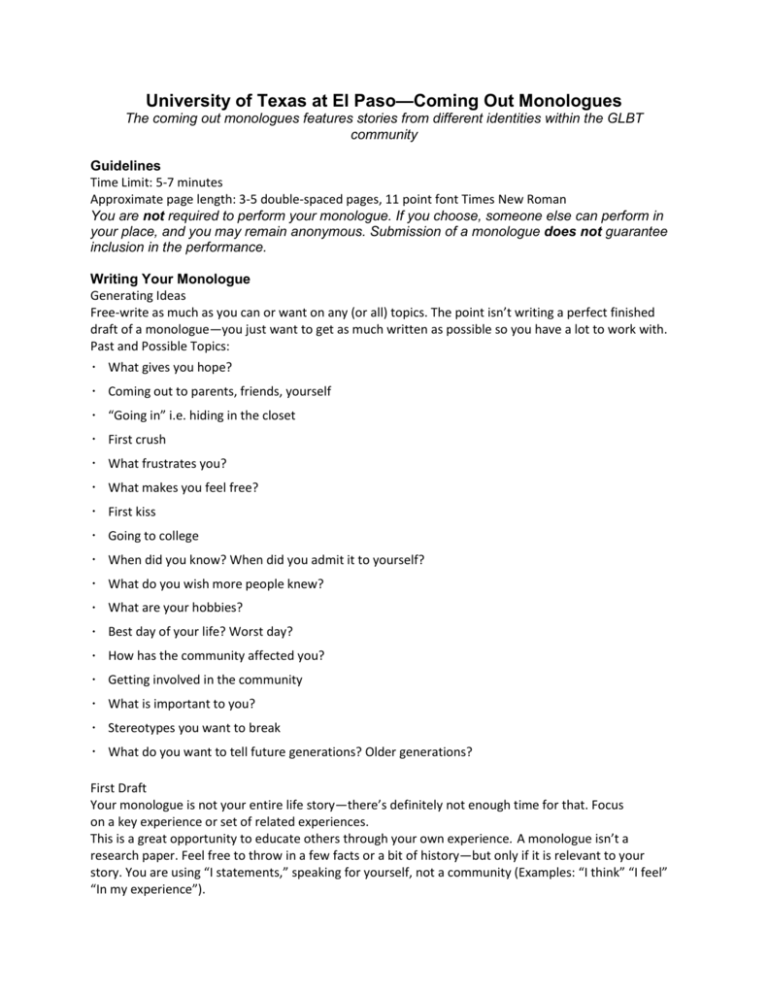
University of Texas at El Paso—Coming Out Monologues The coming out monologues features stories from different identities within the GLBT community Guidelines Time Limit: 5‐7 minutes Approximate page length: 3‐5 double‐spaced pages, 11 point font Times New Roman You are not required to perform your monologue. If you choose, someone else can perform in your place, and you may remain anonymous. Submission of a monologue does not guarantee inclusion in the performance. Writing Your Monologue Generating Ideas Free‐write as much as you can or want on any (or all) topics. The point isn’t writing a perfect finished draft of a monologue—you just want to get as much written as possible so you have a lot to work with. Past and Possible Topics: What gives you hope? Coming out to parents, friends, yourself “Going in” i.e. hiding in the closet First crush What frustrates you? What makes you feel free? First kiss Going to college When did you know? When did you admit it to yourself? What do you wish more people knew? What are your hobbies? Best day of your life? Worst day? How has the community affected you? Getting involved in the community What is important to you? Stereotypes you want to break What do you want to tell future generations? Older generations? First Draft Your monologue is not your entire life story—there’s definitely not enough time for that. Focus on a key experience or set of related experiences. This is a great opportunity to educate others through your own experience. A monologue isn’t a research paper. Feel free to throw in a few facts or a bit of history—but only if it is relevant to your story. You are using “I statements,” speaking for yourself, not a community (Examples: “I think” “I feel” “In my experience”). Write like you are telling a story to a friend or group of friends. Pretending you are writing a letter may help. Don’t worry that this draft isn’t perfect. First drafts never are. Just write! If you need some help, check out Anne Lamott’s essay “Shitty First Drafts.” (Available as a PDF online) Individual Revision Read your writing out loud. What feels awkward to say? Where could your phrases be longer? Shorter? What parts do you like? What parts feel like filler? Where does your story really start? (Maybe your last line should be your first line) What message do you want to send? What tone are you aiming for? (Funny, sad, angry, hopeful) Where do you feel confident? Where do you need help? Do you have any specific questions you want to ask people about what you’ve written? Revision Before submitted, each applicant is required to have their monologue edited and revised. You may come to the Rainbow Miner Initiative in Union West for help with the revisions. If your monologue is accepted, it may need to be revised a second time. If you want to show your writing to someone for critique, here are a few guiding questions to ask: 1) What message do you get from this piece? 2) What lines had an emotional impact? 3) What was your favorite part and why? 4) How was the pacing? 5) What was the tone like? 6) What parts didn’t fit? 7) How is the order/progression of the piece? Submission You can email your monologue to: rmi@utep.edu Adapted from “Texas A&M University Coming Out Monologues.” GLBT Resource Center, Texas A&M University. In LGBTQArchitect (2008). Pennsylvania State University. State College, PA. May 21, 2012. <http://architect.lgbtcampus.org/coming_out_monologues#>
